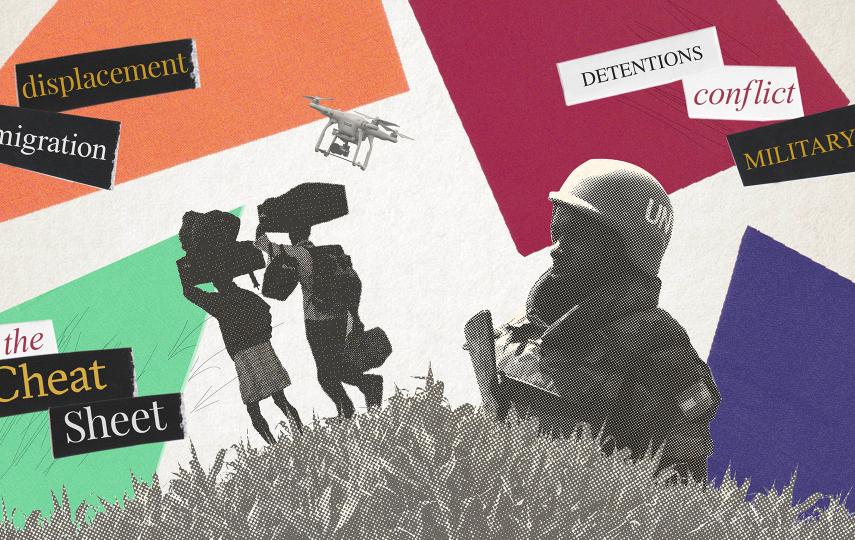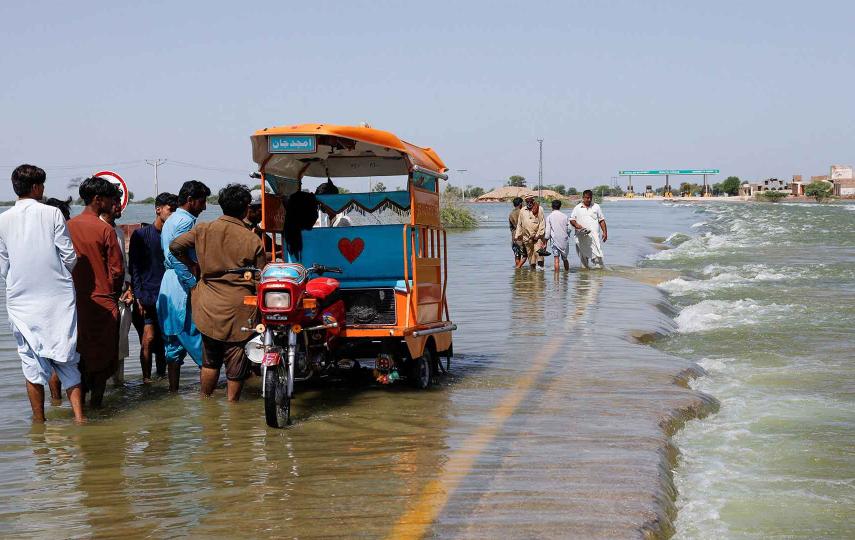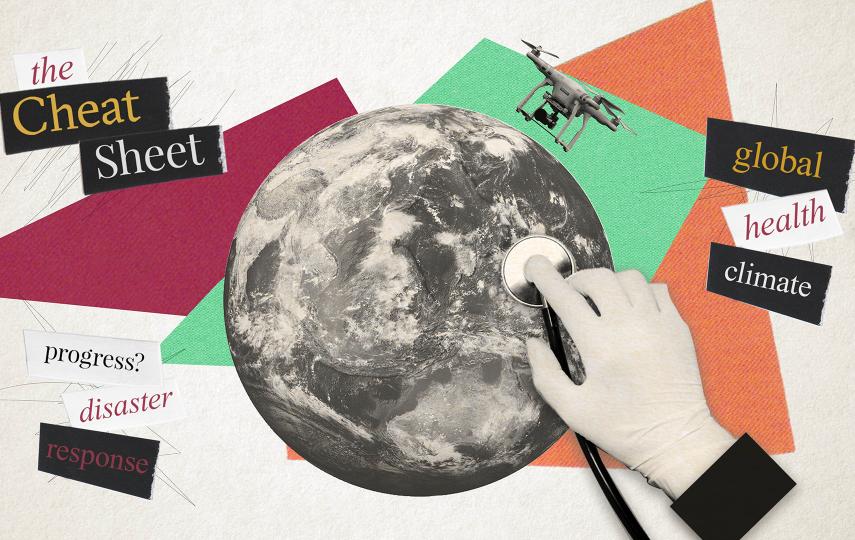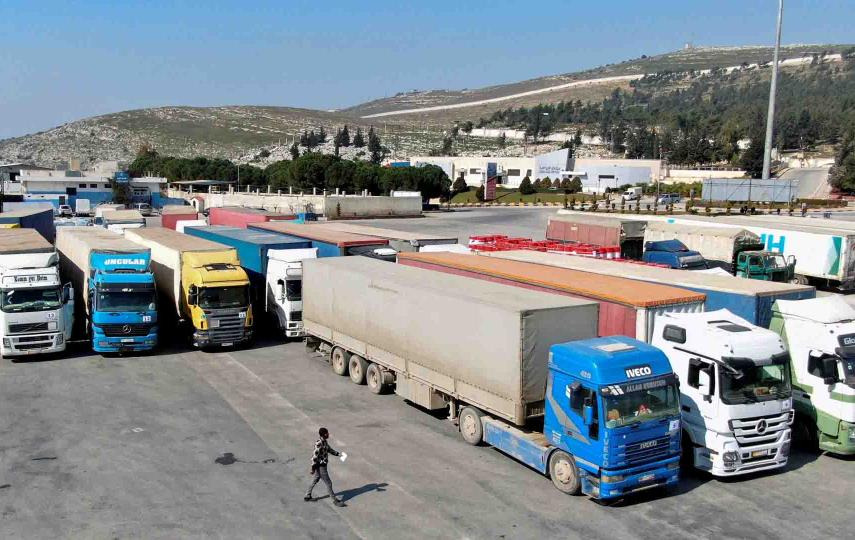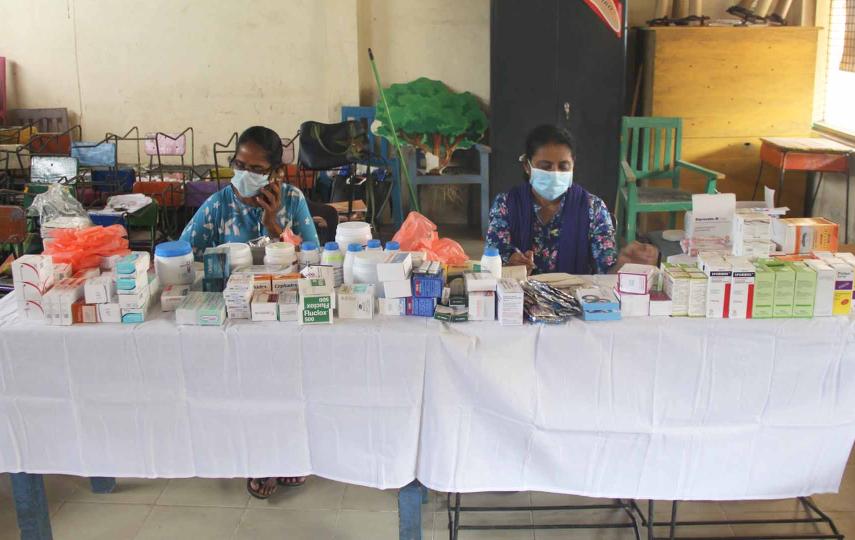While politicians and business leaders gather in Davos, Switzerland for a World Economic Forum dominated by Ukraine, a key UN-backed forum opens with less fanfare on the other side of the globe with an agenda to better prevent and prepare for crises.
The Global Platform for Disaster Risk Reduction, which runs from 23 to 28 May in Indonesia, gathers risk reduction experts, governments, aid agencies, and others. Broadly, the forum is meant to boost and sharpen risk reduction priorities across the spectrum – from local communities and governments, to emergency and development responses and major aid donors.
It comes as the humanitarian impacts of crises continue to soar while aid budgets fall short. The number of disasters each year is rising, and climate change is fuelling more volatile hazards. But advocates warn that preventing crises – rather than constantly responding to them – frequently falls between the cracks in the public eye, and on the humanitarian and aid donor agendas.
“We know what happens when we don’t prepare better, we don’t prevent better, and when disaster strikes,” said Mami Mizutori, the head of the UN Office for Disaster Risk Reduction, which is organising the conference.
This year’s GPDRR is the first to be staged since the COVID-19 pandemic began – a disaster, Mizutori said, that exposed how underlying risks like poverty and inequality worsen crises.
Here’s a roundup of select reporting that explores issues within the risk-reduction agenda, disasters’ growing humanitarian fallout, and what some communities are doing to better anticipate, prepare, and reduce their risks.
Scant hope for relief as repeated heat waves scorch Pakistan
Across South Asia, a lethal, record-breaking heat wave continues to scorch the region.
In Haiti, disaster risks linger as another earthquake anniversary passes
“Every year, we have earthquakes and hurricanes in Haiti, and when the disasters happen, that’s when we start to prepare.”
How Bangladesh is beating the odds on climate disaster deaths
Bangladesh is one of the world’s most vulnerable when it comes to climate-driven disasters. It has also drastically reduced its cyclone deaths. Here’s a look at how.
Four ways Mozambique is adapting to the climate crisis
As changing weather patterns linked to climate change trigger more intense floods and cyclones in Mozambique, the government and its donors are trying to shift their response. Instead of picking up the pieces after each disaster strikes, they want to prevent the worst from happening in the first place.
Fiji’s unheralded frontline disaster responders: Women
In hazard-prone Pacific Island nations, women do much of the work to guard against disasters but still have to fight to be heard.
The women on Bangladesh’s climate front lines
Snapshots of how disasters affect rural women.
The push to anticipate crises gains steam
It may sound obvious, but anticipatory action is also ambitious: It is a completely different way of operating and requires a real shift in mindset toward how the international community approaches crises.
How climate data scarcity costs lives
Disaster risk experts say understanding increasingly volatile climate patterns and weather forecasts is crucial for communities to adapt and respond. But this kind of data is frequently unavailable in countries hit hardest by the climate crisis.
Then and Now: 25 years of disasters, responses, and risk management
A timeline of the evolving strategies to tackle storms, floods, and earthquakes.
Opinion | Excluding the disabled in climate disaster response is an embarrassment
“The global community must include differently abled persons in all conversations, especially those in which they are most impacted.”
Opinion | Revenge of the nerds: Disaster risk reduction and climate change
“If international aid were a movie about the American high school experience, humanitarians would be the jocks, development experts the student council, and DRR, undoubtedly, the nerds. But if American cinema has taught us anything, it is that ignoring the nerds comes at a price.”




